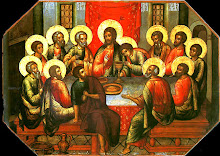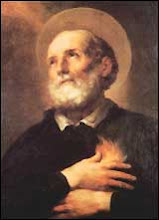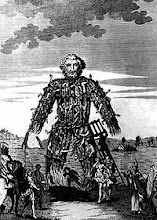Let us look at the phenomenon of paganism. In three posts, I will examine its characteristics, first from a psychoanalytic point of view, given to us by the former President of the C. G. Jung Foundation, Jeffrey Burke Satinover. Dr. Satinover also served as a lecturer at both Harvard and Yale Medical Schools, and now resides in Israel. In parts two and three, I will attempt to lay out some of the stunning anthropological insights of the French scholar, René Girard. Girard approached and compiled what he called "mimetic theory" first as a historian (PhD, Indiana University) and then as a literary critic. Dr. Girard was inducted into the Académie française in March 2005. Both men, coming from their respective disciplines, conclude that
the pagan is our human default position, culturally and psychologically. Without the influence of the biblical spirit, Satinover says, the pagan contains the following:
"First, of course, paganism is polytheistic. Each individual (or in more primitive, homogeneous societies, each group) feels himself subject to his own god or goddess. At a practical level, this means that the distinctive values, standards, goals, and laws of each deity govern the lives of that deity’s worshipers. Thus pagan society is polyvalent: a single moral standard does not govern the lives of men, and except by force majeure, no god, and no corresponding set of human values, is superior to any other. And, as a consequence, pagan societies tend to become inegalitarian. For different standards for different groups is something that inevitably leads to factional competition; and in time force majeure indeed becomes the rule-might soon comes to make right. Zeus rules because he is strongest, and for no other reason; he is certainly not the wisest.
"As we know, pagan society is pantheistic or animistic: gods and goddesses inhabit the natural world and are one with it; nature itself is worshipped as divine; there is no serious distinction between creature and creator. Again, on a practical level, this means that men worship not only the nature "out there," they also worship their own nature, which is to say, their instincts: e.g., hunger, sex, and aggression, and more generally, pleasure. In thus spiritualizing the instincts, pagan worship therefore tends naturally to the violent, the hedonistic, and the orgiastic. Pagan religious ritual arouses the instincts, especially sexuality and aggression, to the keenest possible pitch. In the subsequent gratification of these instincts, the greatest possible pleasure and hence also the highest level of religious ecstasy is meant to be achieved. Violent intoxication, temple prostitution, the ritual slaughter of enemies, self-mutilation, even child sacrifice: all these historical phenomena can be understood not as pathological, but as predictable end-points to the unfettering of human nature..."
What this means for today is not measured necessarily in self-labeled neo-pagan's behavior and/or beliefs. Rather, they are the demonstrable effects of a rejection of the biblical faiths, Judaism and Christianity, in what was once a culture greatly influenced not by our fall-back pagan origins, but a Judeo-Christian ethos at-odds with the aims of paganism for 2,000 years.
But as Anglican bishop Michael Nazir-Ali notes, the slippage of biblical influence has created a vacuum that is being filled by two great pincers of the primitive Sacred: postmodern nihilism and the Scimitar.
In part II, I will review Girard's perspective on hominization and the origins of human culture, and how culture world-wide contains the visible remnants of its violent origins.








2 comments:
2000 Years?
Much of the Old Testament details the story of the Hebrew's oscillation between worshipping God and moving into the default of Paganism.
In fact, one could say that the overriding point of the Old Testament is exactly how easy it is to turn from the Lord God and, instead, to worship other gods.
True. Sorry; I was showing m parochial Christian bias. You are exactly right about the OT. Also, Girard, Bailie, et al show the truly lousy way the OT writers camouflage their duplicity with the primitive Sacred. Call it "chosenness" if you will, but the People Israel have a knack for being terrible myth-makers and myth-believers. They could spot a golden calf a mile awhile, as Bailie says somewhere. But during their times of triumphalism, they did not see how militarism was also a form of the Sacred. When they finally did perceive it, they just left their waywardness in unlike other cultures that chose myth over gospel.
I know 'gospel' doesn't shoe horn back into OT salvation history well, but it summarizes well the difference. Myth, by definition, is that which cover up and keeps one from feeling remorse. Gospel is the opposite: it leads to the experience of Peter hearing the rooster crow, feeling one's wrong-doing at the deepest level possible, and moving to metanoia (repentance) not only of feeling but right living.
Question is, how long will it be till the Scimitar "hears the rooster crow?" When it happens, we will know a milestone has been reached.
Post a Comment